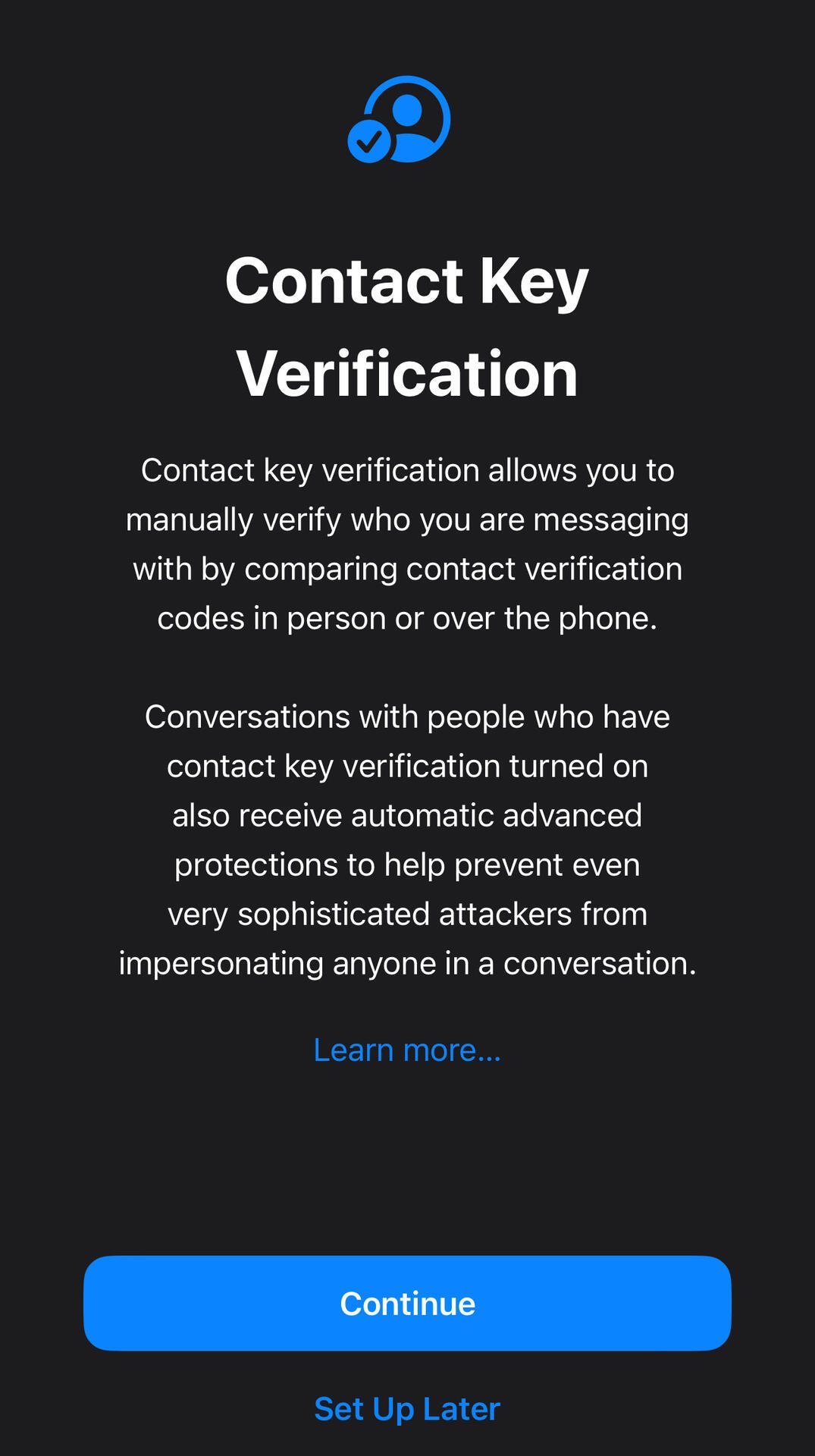Anant on Nostr: ### Like PGP, But Better: Apple’s Contact Key Verification *This is why I believe ...
### Like PGP, But Better: Apple’s Contact Key Verification
*This is why I believe Apple is net positive for privacy:*
Apple’s Contact Key Verification is like PGP but with far better usability, making secure communication accessible to everyone without the complexity. It lets you confirm that the person you’re messaging is who they say they are, protecting you from potential impersonation or interception.
This feature is part of a broader commitment to privacy across Apple’s ecosystem:
- **End-to-End Encryption** in iMessage and FaceTime ensures only you and your recipient can access your messages and calls.
- **App Tracking Transparency** gives you control over which apps can track your activity across other apps and websites.
- **Mail Privacy Protection** stops email senders from tracking when you open an email and masks your IP address.
- **Privacy Labels** on the App Store let you see how apps handle your data before you download them.
- **On-Device Siri Processing** keeps your voice data on your device, reducing the need to send information to Apple’s servers.
- **Secure Enclave** stores sensitive information like biometric data securely on your device, ensuring it never leaves.
- **Sign in with Apple** allows you to sign into apps while keeping your email private.
While Apple’s code is closed-source, meaning we have to trust their implementation, their track record of resisting pressure to weaken encryption and their commitment to user privacy make them a strong choice for anyone serious about protecting their information. Contact Key Verification is just one example of how Apple is leading the way in making privacy both accessible and effective.
*This is why I believe Apple is net positive for privacy:*
Apple’s Contact Key Verification is like PGP but with far better usability, making secure communication accessible to everyone without the complexity. It lets you confirm that the person you’re messaging is who they say they are, protecting you from potential impersonation or interception.
This feature is part of a broader commitment to privacy across Apple’s ecosystem:
- **End-to-End Encryption** in iMessage and FaceTime ensures only you and your recipient can access your messages and calls.
- **App Tracking Transparency** gives you control over which apps can track your activity across other apps and websites.
- **Mail Privacy Protection** stops email senders from tracking when you open an email and masks your IP address.
- **Privacy Labels** on the App Store let you see how apps handle your data before you download them.
- **On-Device Siri Processing** keeps your voice data on your device, reducing the need to send information to Apple’s servers.
- **Secure Enclave** stores sensitive information like biometric data securely on your device, ensuring it never leaves.
- **Sign in with Apple** allows you to sign into apps while keeping your email private.
While Apple’s code is closed-source, meaning we have to trust their implementation, their track record of resisting pressure to weaken encryption and their commitment to user privacy make them a strong choice for anyone serious about protecting their information. Contact Key Verification is just one example of how Apple is leading the way in making privacy both accessible and effective.

